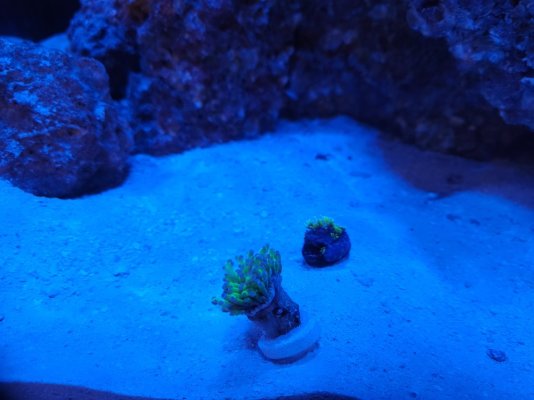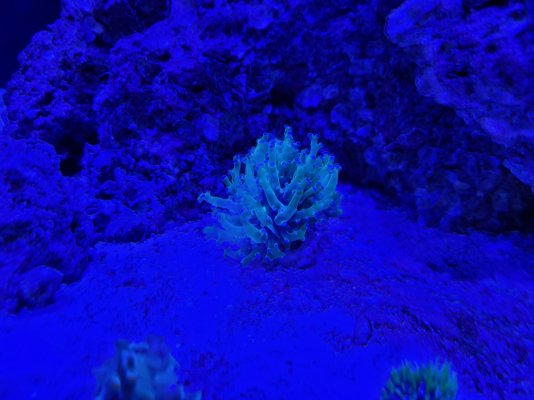Added this montipora the same day I added my clowns which was a day or two after my fishless cycle completed with a 0ppm ammonia. This montipora was just fragged by my Lfs because it was being stung by an anemone. If you look close there is also a pink spot where I dropped coralrx solution directly on it and burned it. So not ideal situation for it.I would interested to see of all the ppl posting they have not had any issues with adding corals on Day 1 .... PICTURES of these corals along with a description of how long you've had them.
In other words... prove it with pics
Anyone can type words on a keyboard and make statements. I would like to see pics
Same picture on left just under blue lights. Picture on right was just a few weeks ago making this frag like 4 months old. Noticeable growth and able to heal from an injury and recover from the stress it was under.
I do not think the success of this coral had anything to do with the cycling of the tank. Also you might think this is not impressive growth but for the first month I had the par too high for it and it started to bleach before I adjusted the lighting. So several stressors since putting it in the tank on “Day 1”.



















